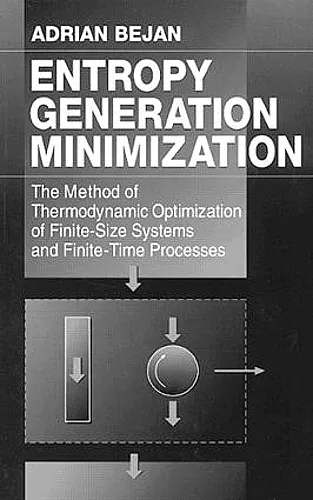Entropy Generation Minimization
The Method of Thermodynamic Optimization of Finite-Size Systems and Finite-Time Processes
Format:Hardback
Publisher:Taylor & Francis Inc
Published:20th Oct '95
Currently unavailable, and unfortunately no date known when it will be back

This book presents the diverse and rapidly expanding field of Entropy Generation Minimization (EGM), the method of thermodynamic optimization of real devices. The underlying principles of the EGM method - also referred to as "thermodynamic optimization," "thermodynamic design," and "finite time thermodynamics" - are thoroughly discussed, and the method's applications to real devices are clearly illustrated. The EGM field has experienced tremendous growth during the 1980s and 1990s. This book places EGM's growth in perspective by reviewing both sides of the field - engineering and physics. Special emphasis is given to chronology and to the relationship between the more recent work and the pioneering work that outlined the method and the field. Entropy Generation Minimization combines the fundamental principles of thermodynamics, heat transfer, and fluid mechanics. EGM applies these principles to the modeling and optimization of real systems and processes that are characterized by finite size and finite time constraints, and are limited by heat and mass transfer and fluid flow irreversibilities. Entropy Generation Minimization provides a straightforward presentation of the principles of the EGM method, and features examples that elucidate concepts and identify recent EGM advances in engineering and physics. Modern advances include the optimization of storage by melting and solidification; heat exchanger design; power from hot-dry-rock deposits; the on & off operation of defrosting refrigerators and power plants with fouled heat exchangers; the production of ice and other solids; the maximization of power output in simple power plant models with heat transfer irreversibilities; the minimization of refrigerator power input in simple models; and the optimal collection and use of solar energy.
ISBN: 9780849396519
Dimensions: unknown
Weight: 960g
392 pages